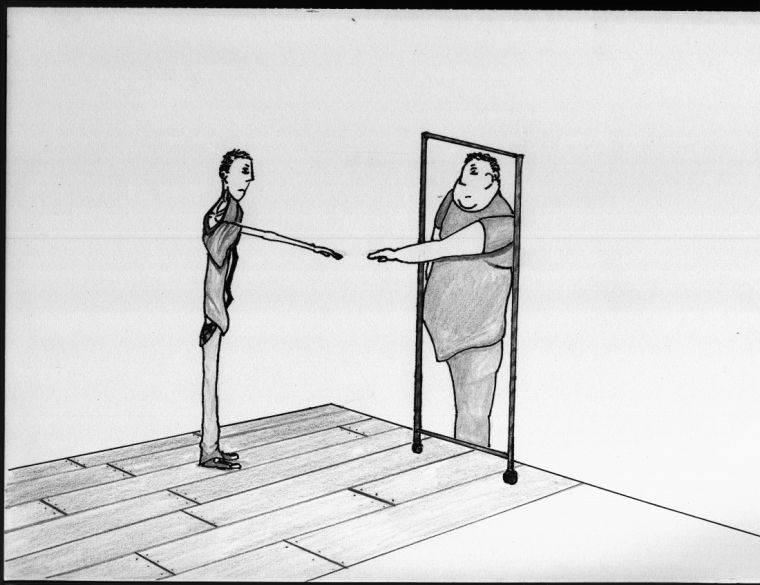Being healthy outweighs the number on the scale
October 15, 2013
Weight obsession can be harmful for someone’s mind and body.
Media portals give people images of what a person should look like. If someone does not see that they fit the mold that is portrayed, some will do whatever it takes in order to achieve a type of “perfection” they desire.
The idea of weight loss can seem like a simple equation to many – eat less, exercise more and the pounds will fall off. However, those who become obsessed with weight loss take these two simple ideas to an extreme.
When someone focuses on the goal of weight loss and feels as if they are working out enough, eating the right food and even losing weight, an obsession can occur. They may feel as if they are not losing enough weight or they’re not losing the weight in the desired areas.
This is how eating disorders come about.
Jennifer Lombardi is the executive director of the Summit Eating Disorders and Outreach program. She is also a survivor of anorexia and feels there are several factors that can attribute to eating disorders.
“They are caused by a combination of several factors: genetics, such as anxiety or depression; cultural issues, such as a pressure to achieve an unrealistic body image or high expectations to excel academically or in a sport; family dynamics, which could include conflict or enmeshment; personality traits, such as conflict-avoidance, perfectionism and sensitivity to criticism; and trauma or loss,” Lombardi said.
There are a few general signs that show when someone is in jeopardy of sliding down the slippery slope of the addiction of weight loss.
Many people who suffer from compulsive weight loss are often fatigued. Food is energy and if the body is getting less energy than is needed, feeling tired all the time is the first sign your body needs more than it’s been getting.
Not eating enough can cause the body to become dizzy and force your body to manually shut down, resulting in fainting or passing out. This can even result in reversing weight loss goals.
That being said, weight loss does require fewer calories. But typically, anything lower than 1,500 calories a day for men and 1,200 calories a day for a women can be dangerous for their body and only perpetuate an unhealthy mindset.
Many are also more obsessed with the number on the scale than their general health, but no one else knows that number except you.
Even so, some people still cannot get the number out of their head and will step on the scale multiple times a day. Checking weight on a scale is not a bad thing, but if someone is dreading getting on the scale every morning or checking the it multiple times a day, there’s a problem.
This shows compulsive behavior of an unrealistic goal. By checking weight multiple times a day, it creates a false hope of different results.
Digital video major Tia Summers, 23, found herself addicted to the scale at age 12. She suffered from anorexia and bulimia. She weighed herself all throughout the day to see if she could allow herself to eat or not.
“The scale represented my goal. When you are anorexic, all you care about is being thinner,” Summers said. “I would weigh myself every time I peed, ate, slept and everything in between,”
Fatigue and unrealistic goals are just the start of weight obsession.
We all have parts of our bodies we would not mind improving. That’s why liposuction was invented. But for those who don’t have thousands of dollars to get fat sucked out of them, there’s always the gym.
Unfortunately, there are a few who take The Well to a whole new level of dedication.
Some students will even go to the gym multiple times a day and take training to the extreme.
Being healthy should always be the goal. People should focus on what works for them and not fixate on a weight number, unwanted fat or over exerting yourself at the gym. Everything in moderation will go a long way.

























































































































